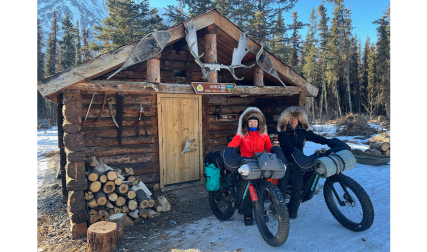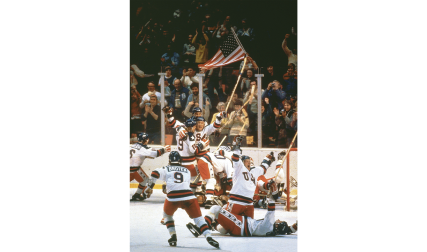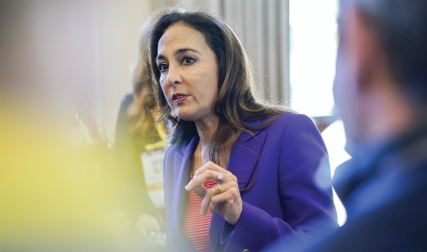Game Changer
Thank you, Lisa Turner ’94, for your thoughtful, honest, and courageous story [“A Man’s Game?” September/October] about Dartmouth’s hiring of the first full-time Division I female football coach. You captured my attention when you wrote, “Let’s say that we [Dartmouth and I] drifted apart.”
Your observation, “Dartmouth was still Dartmouth—still wearing that old patina of masculinity,” evoked a nervous chuckle. After reading your intriguing description of your students’ reactions to coach Callie Brownson’s video, I was delighted by your conclusion: “I discovered the ballast I needed to begin recalibrating my relationship with Dartmouth.” Your reference to the “ongoing social survival game in spaces managed by men” on campus was important and sobering for me. It was a painful reminder of my own Dartmouth experiences nearly 20 years before yours. Inequality and misogyny were obvious to me and routinely highlighted by distasteful attitudes about women.
Your decision to embrace Dartmouth, influenced by Coach Brownson’s and Coach Teevens’ actions, made me happy. Please consider gracing DAM again.
Paul Krupka ’79, Th’80
San Mateo, California
Band of Brothers
Thanks for mentioning the hundred or so ’69s and guests wearing teal armbands at Commencement in support of sexual assault prevention [“Campus,” September/October].
Although our 50th reunion centered around loving Dartmouth and appreciating each other, many reunion book and email messages included regrets and critiques of our undergrad lifestyles. A good number of us had continued old traditions in that all-male environment, such as drinking to get drunk, disrespecting women, fraternity hazing, “Big Greenerism,” an Animal reputation, and the like. One classmate wrote, “We know better now and need to insist that these ‘old traditions’ be recognized, discredited, and to the extent still practiced, discarded.”
Fred Rogers ’50 said, “When I was at Dartmouth the first word of the alma mater was ‘Men…Men of Dartmouth give a rouse.’ Today the first word is ‘Dear.’ Some things change for the better.”
Alumni can help make further change for the better on campus by sending thoughtful messages to young men headed to Dartmouth, sharing our perspectives with clubs, houses, and teams we support, and encouraging all constituencies to leadership. What else?
Dartmouth shines in so many ways. When she becomes an exemplar of a safe place for all students, it will be a tremendous day.
David Agan ’69
Wells, Maine
Language Studies
Your article on the background of BASIC [“Back to BASIC,” September/October] elicited great memories. I was in the first wave of graduates who really knew what computers were about, because I had used BASIC in the late 1950s and early 1960s at Dartmouth.
That background led to my hiring at a major bank in 1968. In a phone interview, a VP asked me what languages I knew. I mentioned FORTRAN and COBAL, then apologetically mentioned BASIC. When asked how much experience I had with BASIC, I said about a year and a half. He said that couldn’t be, because it had only been on the market three months. I said I’d been on the development team. That wasn’t true, as I’d been at Tuck when it was under development, but I used BASIC at Tuck and regularly contacted the BASIC group to add new features, many of which became part of the language.
The bank hired me and called in GE salespeople, who showed me programs I had written at Dartmouth. When I ran one the bank was particularly interested in, it came up with a questionable answer. The VP asked what the problem was. I mumbled that the result was what I’d expected. “I wrote it in college, but I’ve learned a lot since then,” I explained. The bank signed up for GE’s time-sharing service, and I wrote a new version of that program for the bank. It was all based on what I’d learned from my math courses under John Kemeny and Thayer’s engineering professors.
Jerry Greenfield ’61, Th’62, Tu’65
Richland, Washington
During my four years at Dartmouth, from 1963 to 1966, I managed the freshman and then the varsity swim teams. The article by Joy Lisi Rankin ’98 reminded me that Dartmouth was the nation’s first college to use a computer to score the diving competition at each home swim meet. I do not recall who wrote the program, but I transmitted scores from five diving judges in Alumni Gym to the mainframe and had results almost instantaneously. The program deleted high and low scores, multiplied the sum of the remaining three judges’ scores by the degree of difficulty of each dive, and totaled the results.
No other college in the country could do that.
Jim Weiskopf ’66
Beaufort, South Carolina
Health Lessons
Congresswoman Ann McLane Kuster ’78 states that people in New Hampshire “definitely don’t want to pay taxes for somebody else to have health insurance,” vis-a-vis “Medicare For All” [“Continuing Ed,” September/October]. Sadly, this comment seems all too common these days. It is also short-sighted. Ms. Kuster apparently doesn’t understand that taxpayers already help support benefits for today’s Medicare (and Medicaid) beneficiaries. All of us paid taxes to assure that our parents received Medicare benefits. Our private insurance premiums help sicker members of health plans access needed healthcare.
Naturally, a compassionate, civilized society is committed to alleviating human suffering. Just as important, when all of us have health insurance, public health improves. Best of all, for those who don’t want to pay taxes to help others with health insurance, making prevention and timely treatment of illness possible actually saves public funds that would otherwise be wasted in exorbitant emergency room and critical care costs.
Marty Hansen ’75
Chicago
Music in the Air
My dad, Nels Abrahamsen ’49, brought us to Dartmouth for our family vacation every year from 1971 to 1980. The highlight of the 10 days was our weekend trip to Moosilauke, where Bernie Waugh ’74 was lodge manager [“Upfront,” September/October]. Forty years later, I can still hear the sound of his fiddle wafting from the crew porch.
Laura Abrahamsen ’85
Peterborough, New Hampshire
Above and Beyond
As a cofounder of the Dartmouth Flying Club, I’ve often wondered what happened to it. I now know it is defunct, after reading about Christopher Browne ’80 [“Pursuits,” September/October].
In the mid-1940s, as a member of the Navy V-12 program at Dartmouth, I wanted to be a pilot. I was sent for an eye exam to Doc Pollard. He found that my eyes were not good enough to allow me to be transferred to the naval aviation V-5 program.
I did, however, find Bugbee’s Air Field in White River Junction, Vermont, where, for a modest fee, one could take flight lessons. After seven hours of instruction I soloed in a Piper Cub and went on to earn my private pilot’s license. “Flying around Hanover in the fall was a wonderful way to learn to fly,” says Browne. How well I share those feelings! And the other seasons were great as well.
Flying alone over that beautiful terrain created memories that resonate to this day. I am not among the Dartmouth airmen who flew in combat in powerful aircraft, but I am among those who have experienced being alone in the sky, observing earth’s beauty from above.
My class and Browne’s class are separated by 33 years—half the years between the Wright Flyer and Apollo. The thrill of flight remains.
Larry Goodman ’47, Th’47
Greenwich, Connecticut



